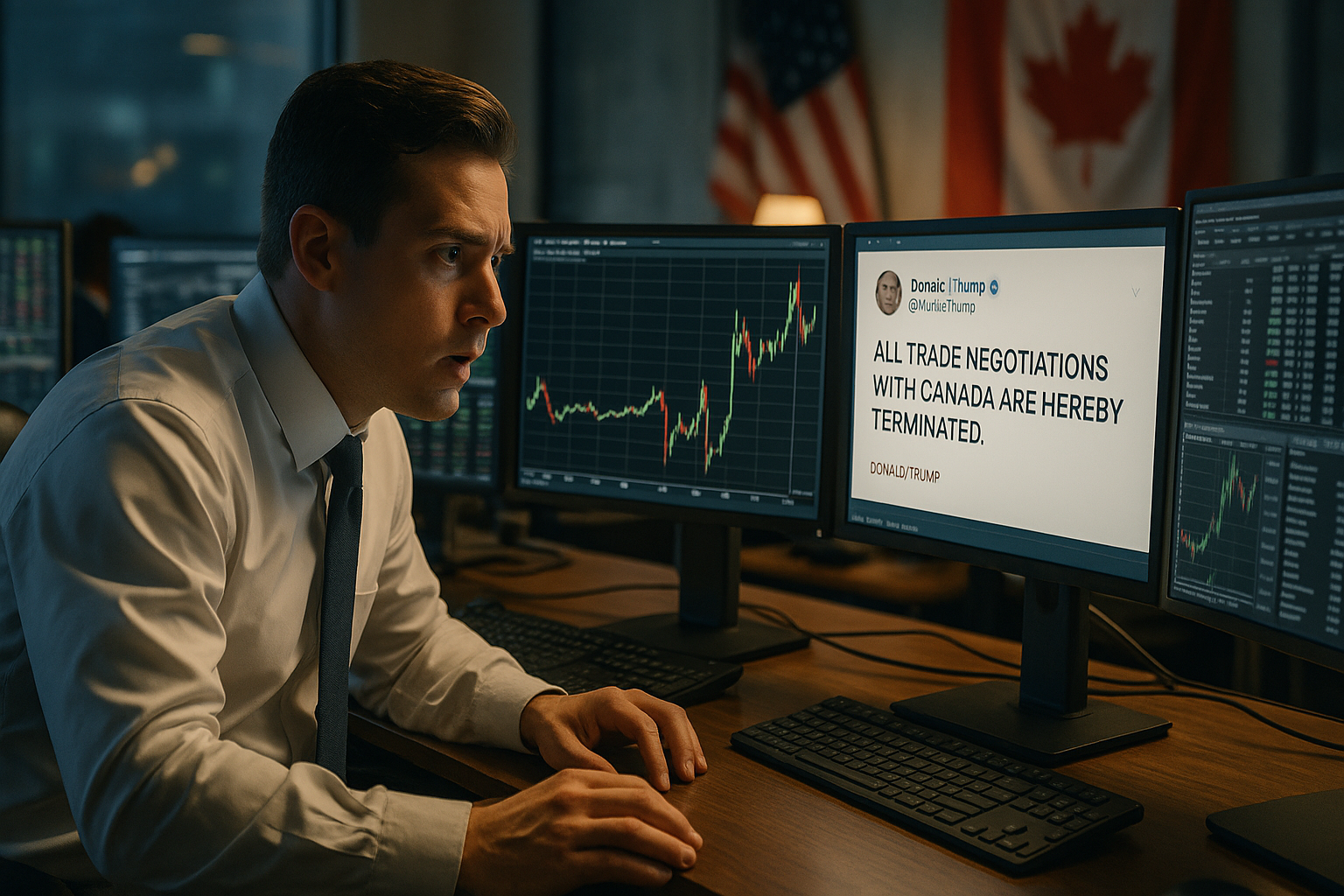A bizarre blip rippled through financial markets yesterday when Donald Trump—never one to whisper when shouting will do—declared in an all-caps social media post that "ALL TRADE NEGOTIATIONS WITH CANADA ARE HEREBY TERMINATED."
The proclamation sent traders into a brief tizzy. I watched in real time as currency desks scrambled to make sense of this latest presidential grenade lobbed into the markets. Within minutes, Bloomberg terminals across Manhattan lit up with urgent messages as analysts tried to determine if this constituted an actual policy shift or just... well, Trump being Trump.
Let's back up a bit. The former president's outburst apparently stemmed from his anger over a Canadian advertisement featuring Ronald Reagan discussing tariffs—an ad the Reagan Foundation has reportedly labeled fraudulent. Trump somehow connected this to Supreme Court influence before dropping his trade bombshell.
The market reaction was telling (and a bit comical). The Canadian dollar wobbled momentarily against the USD before traders collectively remembered the obvious: ex-presidents can't actually terminate international trade agreements by social media decree. Imagine that.
"We had about 90 seconds of panic before reality set in," one currency trader at a major bank told me, requesting anonymity because he wasn't authorized to discuss client reactions. "Then everyone just sort of laughed and went back to work."
This episode perfectly illustrates what I've seen developing over the past seven years—a market phenomenon I'd call "Policy by Declaration," where investors must distinguish between political theater and legitimate policy signals. Having covered financial markets since the 2016 election cycle, I've watched this pattern repeat with diminishing impact.
The most fascinating part? Trump concluded his message with "Thank you for your attention to this matter!" That polite sign-off—tacked onto a bombastic announcement—created a whiplash effect that's becoming oddly familiar in our financial discourse. It's like throwing a grenade and then offering a breath mint.
Trump's casual reference to gold and silver investments deserves a mention too. When governmental declarations become increasingly unpredictable (as they have), precious metals often serve as the market's security blanket. It's financial comfort food—something tangible when everything else feels like quicksand.
Look, we've seen this movie before. Remember the 1971 Nixon Shock? Another Republican president making dramatic economic pronouncements that rattled global markets. The difference now is the delivery mechanism—social media versus television—and the constitutional authority behind the words.
For investors navigating this landscape, the challenge isn't really about US-Canada trade specifics. It's about developing what some strategists now call "rhetorical risk premiums"—basically, mathematical discounts applied to market-moving statements based on who's talking and their history of actually following through.
I've spoken with several portfolio managers who've actually codified this approach. One hedge fund analyst (who also requested anonymity) showed me a spreadsheet tracking the market impact duration of various political figures' pronouncements. Trump's, interestingly, have the highest initial impact but the shortest duration.
This weird intersection of social media, politics, and markets has created a new form of financial theater where attention itself becomes a tradable commodity. Perhaps that's why Trump's closing line—"Thank you for your attention to this matter!"—feels almost like a wink to those in the know.
The Canadian dollar, by the way, fully recovered within the hour.
In this brave new world of financial markets, maybe the real skill isn't technical analysis or fundamental research, but simply knowing when to take an all-caps declaration with an all-caps grain of salt.
